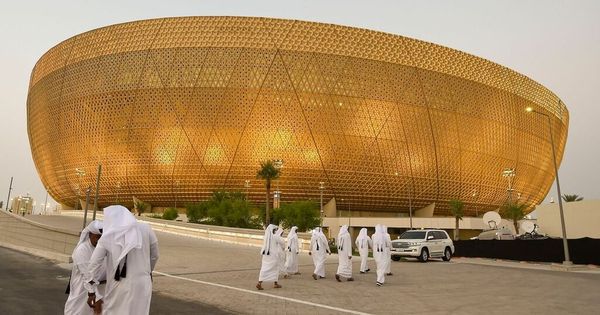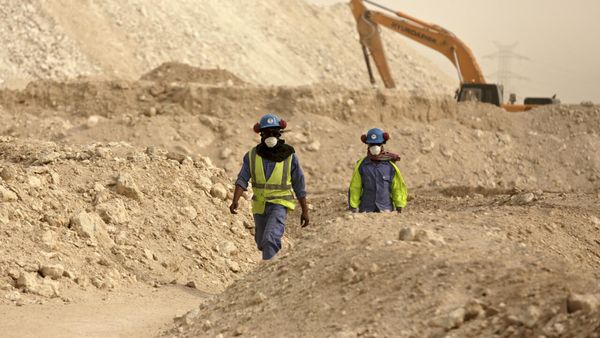Unpaid wages, under-reporting of migrant worker deaths and an eye-watering carbon footprint are just some of the concerns being expressed by human rights groups and environmentalists as Qatar prepares to host one of the planet's biggest sporting events. Just weeks before the opening match, we bring you a special edition on the 2022 FIFA World Cup.
Qatar has built an airport, a metro system, new roads, dozens of hotels and seven stadiums, as well as an entire city that's been constructed around the venue set to host the World Cup final. The emirate has faced ongoing criticism for its treatment of the tens of thousands of foreign labourers employed to build the necessary infrastructure for the competition. Human rights groups accuse the government of under-reporting the number of deaths on mega-construction projects. They're demanding that FIFA set up a compensation fund for migrant workers, who come mainly from Africa and Asia. FRANCE 24's Chloé Domat and Rammohan Pateriya have been meeting some of them. We bring you an extract from their documentary.
Meanwhile, the tournament is being promoted as the first ever "carbon neutral" World Cup, meaning that its net impact on the climate is zero or negligible. But the not-for-profit advocacy group Carbon Market Watch is among those expressing doubt about those claims. It has carried out an investigation that suggests true emission levels have been grossly underestimated. We speak to Khaled Diab, director of communications at Carbon Market Watch.
The first World Cup to be hosted in the Middle East also marks Qatar's debut appearance in the tournament. The home side will be kicking off against Ecuador in the opening game on November 20. Among the other hopefuls flying the flag for the region are Iran and Saudi Arabia. We take a closer look at their prospects.










